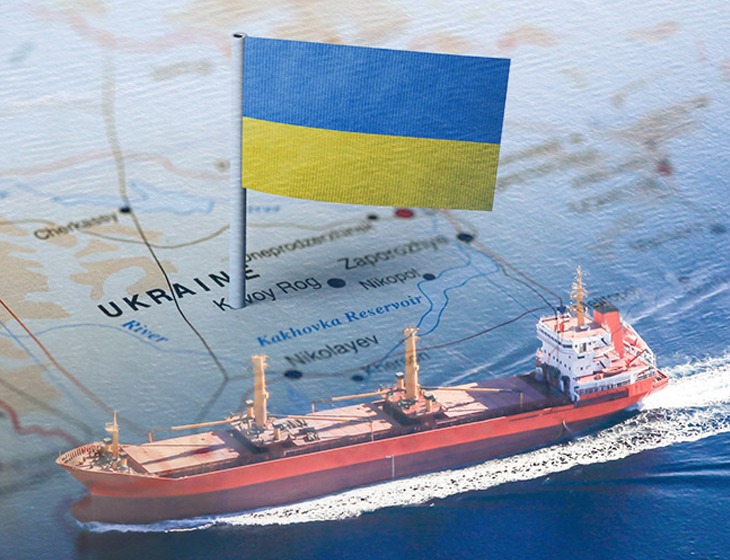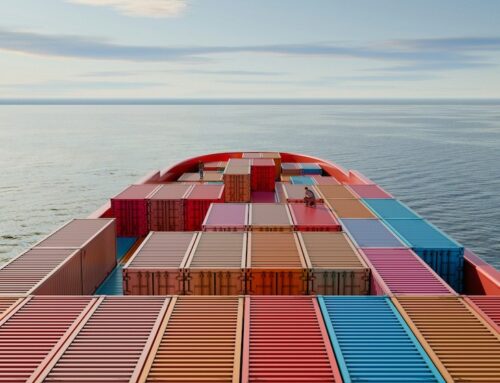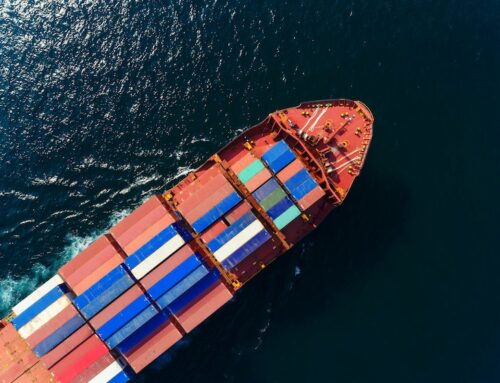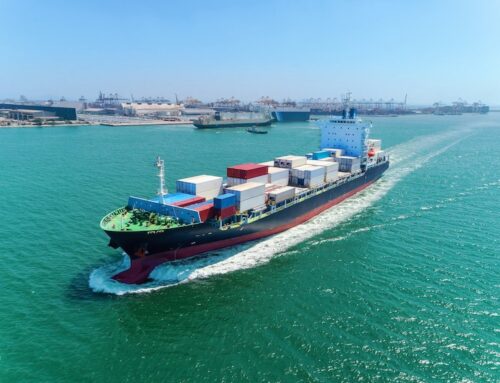Russia’s invasion of Ukraine following the pandemic has had a substantial, and ongoing, impact on the global shipping industry. We examine how the shipping industry has been affected and explore the present and future consequences of the war.
The inflationary consequences of the Russia-Ukraine War are having a big impact on Europe’s supply chains in 2023. Industry experts agree that with pandemic disruption finally in the past, the ongoing conflict and resulting high inflation and global economic impact are the main concerns this year.
Initial Impact of the Conflict on Supply Chains
When the war started in February 2022, supply chains were emerging from pandemic-influenced disruption and slowdown. The Russia-Ukraine conflict initially acted as a catalyst in exacerbating existing supply chain problems resulting from the pandemic.
The war was responsible for the closure of multiple ports in the Black Sea area, nudging up already higher costs for shipping goods across the ocean. Ships had to take different routes, causing congestion and delays in the movement of cargo, which made the global supply chain situation worse. Moreover, the restrictions imposed on Russia by western economies led to a shift from using trains to using ships for transportation, adding more pressure to the post pandemic shortage of containers. All of these factors contributed to the significant price hikes that occurred after the pandemic.
The higher energy costs that were a direct result of the Russia-Ukraine war, and sanctions enforced by many countries across the world, have caused shipping costs to rise. The increase in costs have in turn resulted in carriers’ sea freight bunker prices to rise, with carriers passing on the costs via additional tariffs.
This closure of ship movements in the Black Sea area, which was the world’s second-largest grain-exporting region in 2021, had an immediate effect on food availability and therefore inflation.
Global Economic Impact Hits Demand
The war has not only impacted the supply chain, but the entire global economy. Since Russia’s invasion of Ukraine, the global economy has suffered from increasing fuel, food and commodity prices leading to inflation, and increased interest rates.
Amidst predictions by numerous analysts of the potential for recession driven by inflation and high interest rates, Europe emerges as a region of concern. This is primarily due to its heavy reliance on imported gas and oil, especially from Russia. Additionally, Europe continues to face challenges with food inflation, with the UK being particularly affected.
Continuing high inflation dominates the concerns regarding supply chains in Europe – a huge amount of that inflationary pressure is a direct result of the conflict in Ukraine. As a response, central banks have implemented higher interest rates to limit spending. Additionally, the reopening of bars, restaurants, and other previously closed facilities post-pandemic has led to increased expenditure on services as well.
The knock-on effect on consumers is reduced spending power which has hit goods purchases. The decline in demand for goods from western retailers, which are primarily transported by ships, is the main reason for the decrease of the price of shipping since its peak in 2021.
Throughout 2022, as prices and interest rates rose, both consumers and businesses experienced the pressure. Consequently, the container market’s COVID boom in demand began to fade, and the overall volumes saw a 4% year-on-year decline, with a further 8% decline in volumes during the fourth quarter.
Outlook and Future Consequences
Due to the persistent high inflation and the anticipated continued increase in central bank rates, it is expected that demand will remain low for the remainder of the year. The International Monetary Fund (IMF) recently projected a decline in global trade growth to 2.4% for this year, compared to 5.4% in 2022.
The decline in shipping volumes presents an overcapacity issue for shipping companies. When the demand for container space surged during the pandemic, many carriers invested in new ships. The arrival of these vessels may contribute to an excess shipping capacity. If this occurs, shipping lines are likely to employ the same strategies they used to date in the global slowdown – taking numerous vessels out of operation, known as blanking sailings. In 2022, carriers cancelled or skipped 1,639 shipments between east Asia and Europe or North America, a 40 per cent increase on the previous year, according to data provider eeSea.
The difficult geopolitical circumstances that have impacted the operations of shipping lines is influencing the diversification of manufacturing origins. Companies are now fully aware that global events can disrupt shipping services intermittently. Western nations that have been reliant on raw materials and components from Russia, have been forced to reassess their willingness to engage in trade, due to the limitations placed as a result of sanctions. The ongoing Russia-Ukraine conflict, along with the pandemic, has therefore sparked a growing interest in reshoring as a viable strategy. The core concept is to establish suppliers in close proximity to assembly and manufacturing facilities in order to mitigate product shortages. Numerous prominent organisations have begun to unveil their intentions to establish supply operations nearer to the markets they cater to.
As of the present moment, the conflict in Ukraine shows limited indications of easing. Consequently, it becomes challenging to determine the comprehensive long-term effects that the invasion will have on the global economy. European nations, specifically those closely interconnected with Russia in terms of trade and fuel dependence, face potential significant long-term economic consequences. The extent of which, and the resulting impact on supply chains remains unclear, resulting in continued uncertainty for the future of the shipping industry.








